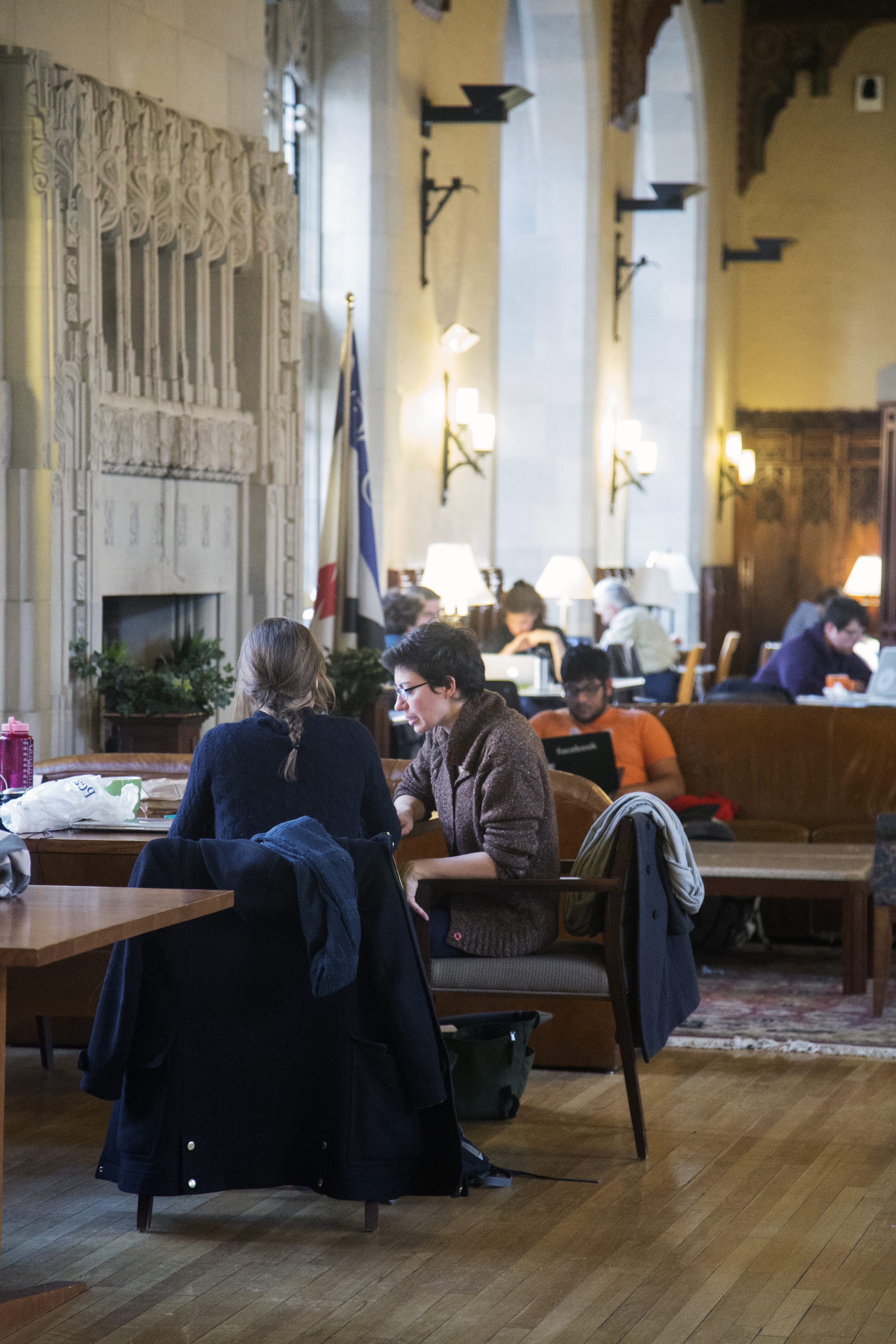
The Yale Graduate Student Assembly launched a podcast earlier this month to inform students at the Graduate School of Arts and Sciences about issues and resources related to student life, education and professional development.
The podcast, entitled “GradCast,” was started by the GSA’s Public Relations Committee. Its first episode was released on SoundCloud on Jan. 19 and covered the history of the Cushing Center, which houses a collection of brain samples, at the Medical School Library. It has released two episodes, which run between 10 and 20 minutes, as of Monday night. The first one has been listened to 123 times on SoundCloud and the second, which discusses ongoing development in Yale’s graduate student unionization efforts, 218 times.
Alicia Steinmetz GRD ’19, current chair of the GSA’s Public Relations Committee and one of the podcast’s voices and producers, said that she and Nicholas Vincent GRD ’17 came up with the podcast idea last year when the two were exploring different methods of communication with their constituencies. Both Steinmetz and Vincent sat on the GSA’s Public Relations Committee last year.
“Because we’re a democratic body, it’s really important to us to have this transparency, accountability and feedback,” Steinmetz told the News. “We were trying to figure out how to communicate with our constituents in a way that can open a conversation.”
According to Vincent, who is now the Chair of the GSA’s Executive Board, he and Steinmetz felt that a podcast would be suitable because people in the age range of typical graduate students often look to podcasts for information. He added that GradCast has been in the works for over a year.
The GSA’s website lists nine graduate students as the producers of the podcast. Bara Badwan GRD ’21, who is listed as a “behind the scenes” producer, said that making an episode consists mainly of structuring the narrative side of the episode as well as finding available sources to interview, a process he said can take weeks.
“It’s kind of a scavenger hunt to find interesting stories,” he said.
Steinmetz said she hopes to see the podcast grow and reach more constituencies than just students at the Graduate School. She added that she would like to get more students and organizations involved by allowing them to submit ideas for episodes.
“I hope that it serves as a place that people feel they can reliably come to as a resource for information on what’s going on in our communities, both Yale and New Haven,” Vincent said.
The podcast comes at a tumultuous time for the Graduate School, as the National Labor Relations Board ruled last week that Yale’s unofficial graduate student union Local 33 will be allowed to hold separate labor elections in nine academic departments. According to the GSA’s website, the podcast will attempt to share multiple viewpoints on any issue it explores.
GradCast’s second episode, entitled “Inside the Hearings,” goes in-depth on the history of and arguments both for and against graduate students unionization at Yale. It noted that though the GSA opposes unionization via Local 33, the podcast is intended to be a neutral medium of information.
According to Steinmetz, members of the Public Relations Committee heard from constituents that they wanted more information about the subject of unionization.
“Our intention was not to convince anyone of anything,” Steinmetz said. “We just wanted to say, ‘Look, we’re trying to understand this and we want to represent a conversation among students who are trying to understand what’s going on.’”
Steinmetz told the News that the episode on unionization was part of a larger information initiative that the GSA is taking on. She said a series of town hall meetings are in the planning stage, which will cover various subjects including unionization.
The GradCast team is currently working on episodes relating to the Yale Corporation, Yale’s endowment and the Elm City’s music scene.







